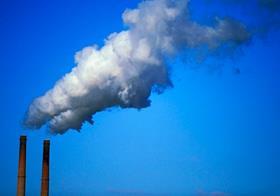
Australia’s farming community has expressed concern about the federal government’s carbon tax initiative, announced yesterday, claiming production costs will rise despite agriculture being largely exempted from the scheme.
The new carbon tax will put an initial A$23 per tonne price on carbon dioxide emissions, aiming to encourage large-scale polluters to cut down on greenhouse gas emissions and transition to cleaner technology and practices.
It is expected to increase the average retail cost of fresh produce grown and sold domestically byaround 1 per cent.
Announcing the plan on Sunday, Australia’s government detailed that the agriculture sector’s greenhouse emissions would be excluded from the tax, as would fuel used by vehicles on-farm and light commercial vehicles on the road.
The key concern for Australia’s agricultural bodies, however, was the flow-on effect of increased electricity costs, which industry body the National Farmers’ Federation (NFF) said would shave several per cent off producers’ profits and reduce farmers’ international competitiveness.
“Independent research by the Australian Farm Institute over recent months has highlighted that additional costs from electricity and other indirect energy related sources will remain embedded in the carbon tax for all Australian farmers,” said NFF CEO Matt Linnegar. “This research shows that even with fuel excluded, the average Australian farmer will still incur an additional A$1,500 a year in costs under a carbon price of A$23 per tonne, eroding their net farm income by 2.4 per cent.”
The country’s peak vegetable and potato industry body Ausveg agreed with the NFF position in a statement issued yesterday, adding that cash-strapped growers would find it difficult to access the longer-term benefits of the scheme.
The Carbon Farming Initiative (CFI), recently tabled in parliament, ties in with the new tax scheme and offers a system for growers to sequester carbon into their soil and through tree planting, earning credits which can then be sold to polluting industries to offset emissions.
But while the CFI offered longer-term benefits, Ausveg CEO Richard Mulcahy explained vegetable growers would struggle to find the funding to transition their business practices to take advantage of it.



